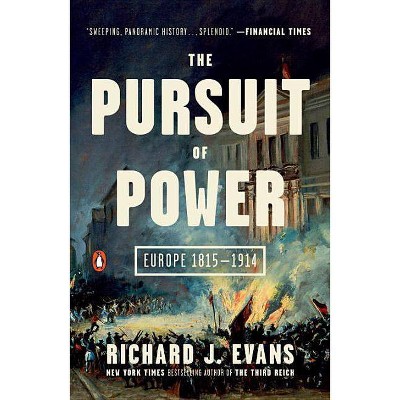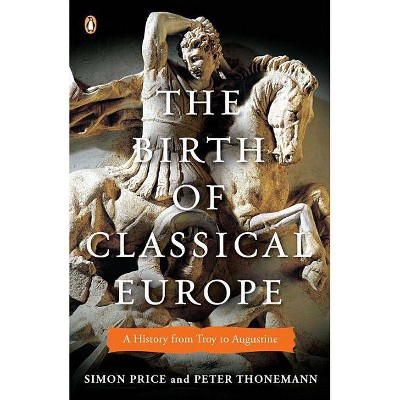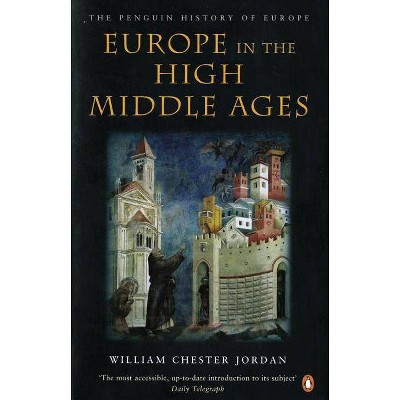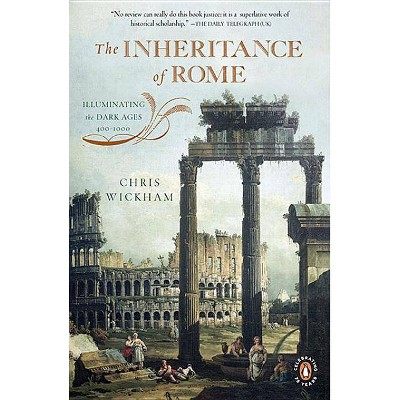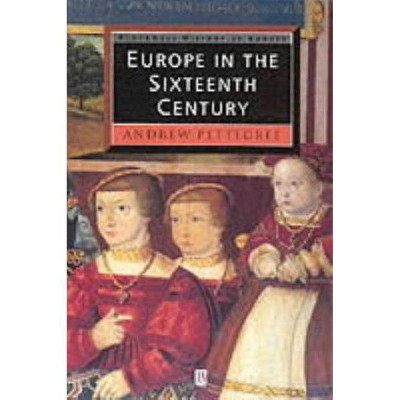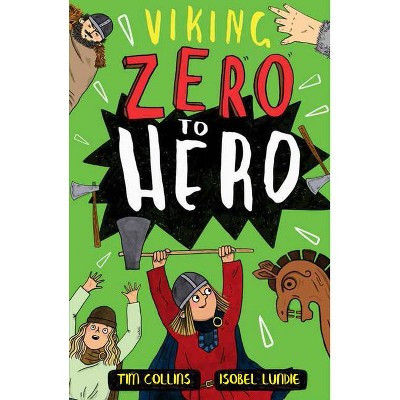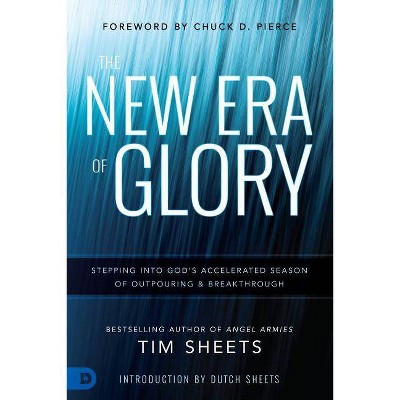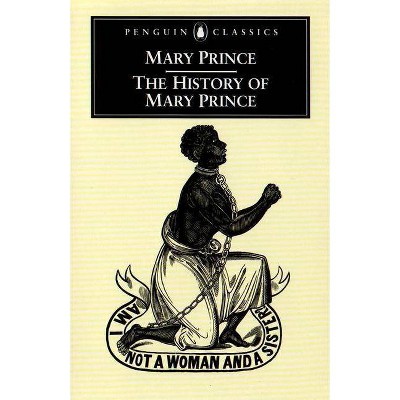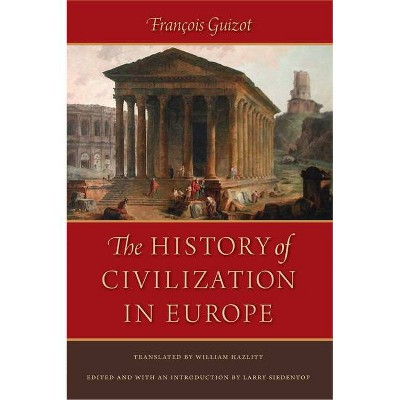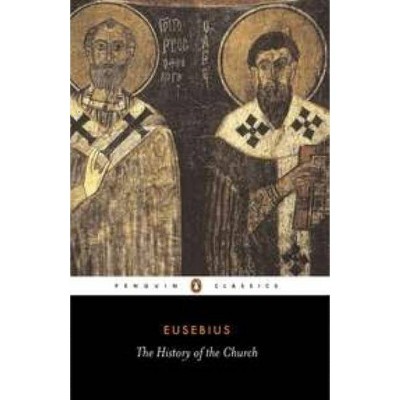The Pursuit of Glory - (Penguin History of Europe (Viking)) by Tim Blanning (Paperback)
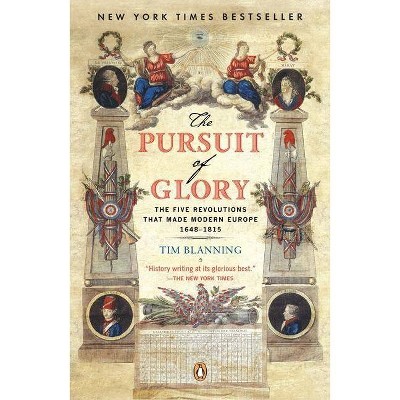
Similar Products
Products of same category from the store
AllProduct info
<p/><br></br><p><b> About the Book </b></p></br></br>The new volume in the acclaimed Penguin History of Europe series takes on thegreater 18th century in all its revolutionary glory.<p/><br></br><p><b> Book Synopsis </b></p></br></br><b>History writing at its glorious best.--<i>The New York Times</i> <p/>A triumphant success. [Blanning] brings knowledge, expertise, sound judgment and a colorful narrative style.--<i>The Economist</i> <p/>The <i>New York Times </i>bestselling volume in the Penguin History of Europe series</b> <p/>Between the end of the Thirty Years' War and the Battle of Waterloo, Europe underwent an extraordinary transformatoin that saw five of the modern world's great revolutions--scientific, industrial, American, French, and romantic. In this much-admired addition to the monumental Penguin History of Europe series, Tim Blanning brilliantly investigates the forces that transformed Europe from a medieval society into a vigorous powerhose of the modern world. Blanning renders this vast subject immediate and absorbing by making fresh connections between the most mundane details of life and the major cultural, political, and technological transformations that birthed the modern age.<p/><br></br><p><b> Review Quotes </b></p></br></br><br>?History writing at its glorious best.?<BR> ?"The New York Times"<BR><BR> ? Magnificent. Exhilarating. [Blanning has] the acuity of vision to focus on the particular without ever needing to sacrifice the broader perspective.?<BR> ?"The Sunday Times" (London)<BR> ? A triumphant success. [Blanning] brings knowledge, experience, sound judgment, and a colorful narrative style.? <BR>?"The Economist"<BR><BR><br><br>History writing at its glorious best. <BR> "The New York Times" <BR> Magnificent. Exhilarating. [Blanning has] the acuity of vision to focus on the particular without ever needing to sacrifice the broader perspective. <BR> "The Sunday Times" (London)<BR> A triumphant success. [Blanning] brings knowledge, experience, sound judgment, and a colorful narrative style. <BR> "The Economist"<br><br>aHistory writing at its glorious best.a<BR> a"The New York Times" <BR> a Magnificent. Exhilarating. [Blanning has] the acuity of vision to focus on the particular without ever needing to sacrifice the broader perspective.a<BR> a"The Sunday Times" (London)<BR> a A triumphant success. [Blanning] brings knowledge, experience, sound judgment, and a colorful narrative style.a <BR>a"The Economist"<br><br>In 1648 the Peace of Westphalia brought the Thirty Years War to an end. Although the Europeans didnt know it, of course, this devastating conflict would prove to be the last of the Wars of Religion that had been tearing the continent apart since the start of the Reformation in 1517. Europe was entering a new age. <BR> Despite the Renaissance, it was still a largely medieval world in its outlook, infrastructure and government in 1648. Europe was less wealthy and, in many ways, less economically advanced than other parts of the world, like Mughal India and China. By 1815, the year of the Battle of Waterloo, Europe was recognizably modern. It was also far in advance of the rest of the world economically, scientifically, technologically, politically and militarily. <BR> So the period between these two dates is the very hinge of European history. It is no small accomplishment to cover so vast a subject adequately in a single volume. But Tim Blanning, a professor of modern history at Cambridge and a fellow of the British Academy, not only does so, he also triumphs at it. The Pursuit of Glory, at 708 pages, is not a short read, but it is so well written that for those who love history, it is a page turner. <BR> Mr. Blanning accomplishes his task not by taking a strictly chronological approach but by dealing with various aspects of a rapidly changing Europe one by one. Consider communications. In 1648 the main roads in Europe were mostly the ones that the Romans had built 1,500 years earlier and that had been neglected ever since. <BR> The pace of travel, therefore, was seldom more than the speed a man could make on his own two feet, which, indeed, is how most people traveled. What coachesthere were were wretched and slow. In 1708 an envoy from Louis XIV to Madrid reported from Bayonne, in southwestern France, that he had been nine days on the road and expected that he would need another two weeks to reach the Spanish capital. <BR> But by the end of the period, roads had much improved in Western Europe and with it the speed of travel. In France travel times were cut in half and the comfort of riding in coaches much improved by the better roads. In Britain matters were even better. The trip from Bath to London took 50 hours in 1700. By 1800 it took 16. These greatly improved roads allowed other improvements, like much more efficient and much less costly postal service. <BR> This sort of history can be deadly dull, an endless recitation of facts and statistics. In Mr. Blannings hands it is not, because he has a keen eye for the exactly apposite contemporary quotation. The people who lived through this transportation revolution regarded it with the same wonder that we regard, say, the global positioning systems that now keep us from getting lost. In 1754 a newspaper advertisement proclaimed, However incredible it may appear, this coach will actually arrive in London four days after leaving Manchester. <BR> Mr. Blanning is also the master of the unexpected connection. The greatly improved roads, and thus greatly increased traffic, had an entirely unanticipated consequence: highwaymen. The reason that the 18th century saw these gentlemen of the road turn into figures of romance and legend is simply that the improved roads provided them with so many more people of whom they could demand that they stand and deliver. <BR> Mr. Blanning uses this technique over and over, alwayswith good effect. Why did France develop economically so much more slowly than Britain in the 18th century, with huge political consequences? One important reason was that Britain had an internal common market, but France was still riddled with internal tariffs and local taxes, causing no end of economic discontinuities. <BR> An English traveler reported in 1786 that a nobleman of Berry told me that on one side of a rivulet which flows by his chateau, salt is sold at 40 sols a bushel, and on the other ... at 40 times as much. In consequence of this, no less than two thousand troops of horse and foot were stationed on its banks to check smugglers. <BR> While everyone likely to read this book has heard of the scientific revolution, brought about by people like Isaac Newton, and the industrial revolution that began toward the end of the period (both well covered here), the agricultural revolution occurring at the same time was equally important. In 1648 European agriculture had not changed much since medieval times. But enclosure, manuring, crop rotation, new crops like turnips and clover, and improved breeding brought forth a large increase in food production. <BR> One result was a golden age for the landed gentry, whose rent rolls increased sharply, and their conspicuous consumption along with them. (Robert Walpole employed 50 people just to weed his gardens.) Another result was the freeing of manpower to work in the factories that were beginning to spring up in the English countryside. The industrial revolution came about because of turnips as well as steam engines. <BR> Mr. Blanning thoroughly covers the politics and endless wars of the era. These power shifts were not unconnected withthe two great political trends in Europe in this period: the development of representative government in Britain and the Dutch Republic and the growth of royal absolutism in much of the rest of Europe. Change thus came about in manageable increments in Britain, allowing it both to modernize efficiently and to accommodate a potent new political force public opinion, made possible by coffee houses and newspapers while change was bottled up until it exploded in France. <BR> Even here, Mr. Blanning presents the historical nuggets that bring this book to such vibrant life. When Louis XVI learned that he was to die on the guillotine the next morning, he sent a servant to fetch a copy of David Humes History of England to learn how Charles I had faced his own execution. <BR> "The Pursuit of Glory" is history writing at its glorious best. <BR> John Steele Gordon (author of "An Empire of Wealth: The Epic History of American Economic Power"), "The New York Times"<br><p/><br></br><p><b> About the Author </b></p></br></br><b>Tim Blanning</b> is professor of modern history at the University of Cambridge, a Fellow of the British Academy, and the author and editor of numerour books on European history. He appears regularly on BBC Radio in England.
Price History
Price Archive shows prices from various stores, lets you see history and find the cheapest. There is no actual sale on the website. For all support, inquiry and suggestion messages communication@pricearchive.us
